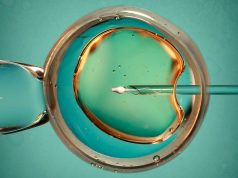55 percent saw a neurologist in the year prior to delivery; they were more likely to be on a recommended antiseizure medication
By Elana Gotkine HealthDay Reporter
FRIDAY, Sept. 19, 2025 (HealthDay News) — Just over half (55 percent) of pregnant women with epilepsy (WWE) saw a neurologist in the year prior to delivery, according to a study presented at the American Neurological Association Annual Meeting, held from Sept. 13 to 16 in Baltimore.
Chloe Hill, M.D., from the University of Michigan in Ann Arbor, and colleagues characterized neurologist care during pregnancy among 2,385 WWE with a delivery date within the study period.
Overall, 55 percent saw a neurologist in the year prior to delivery. The researchers found that 59 percent of WWE were receiving one antiseizure medication (ASM) in the year prior to delivery, and 17 and 5 percent were receiving two and three or more ASMs, respectively; 19 percent had no ASM claims. Overall, 62 percent of WWE were receiving a recommended ASM, including levetiracetam, lamotrigine, and oxcarbazepine; 3, 10, and 0.3 percent were taking less favorable ASMs of valproic acid, topiramate, and phenobarbital, respectively. The likelihood of receiving a recommended ASM was increased for WWE who saw a neurologist (74 versus 48 percent), and they were less likely to stop taking their ASM (8 versus 33 percent). Use of a less favorable ASM and polytherapy were more common among WWE seen by a neurologist.
“This study of recent national data shows how many women with epilepsy may not be accessing the specialist care they need during pregnancy,” Hill said in a statement. “Seeing a neurologist during pregnancy is one important means to promote clinical practice guideline-concordant care for pregnant women with epilepsy, which supports safer pregnancies and healthier outcomes for women with epilepsy and their babies.”
Copyright © 2025 HealthDay. All rights reserved.








